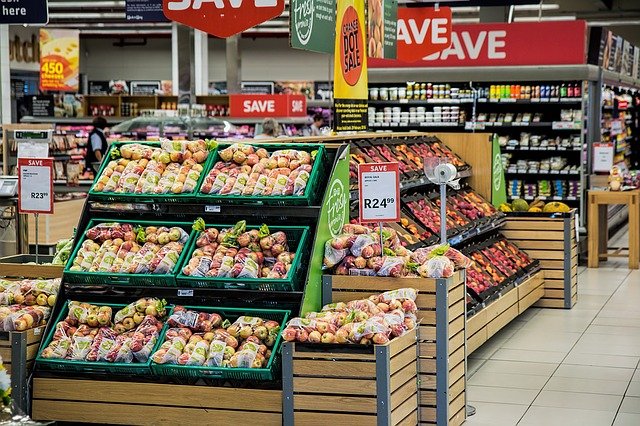 |
| Image by Steve Buissinne from Pixabay |
Save Money on Your Grocery Shopping
One of the basic necessities is the stock of your food ingredients. And your budget for groceries can make or break your budget for your weekly fund that has to be allocated for other things. This is how flexible the budget for groceries is. This flexibility must be handled properly.
Here are tips on how you can save money on your groceries:
· Make sure you are not hungry before going to the Grocery Store - research shows that shoppers tend to buy more at the grocery store when they are hungry. This is the reason why some grocery stores have bakeries along the shop entrances.
The smell of freshly baked bread and cakes can indeed make you hungry. And this can make you shop and spend more than you want.
The best way to deal with this is to make sure your stomach is not empty, if there is no food to take; drink at least a glass or two of water. Shopping when you are full will help you fight the temptation of lingering smells in the grocery store.
· Try to look up and down at the shelves - make sure you are looking for higher and lower racks. The more expensive brands are usually located on the shelf at your chest level. Cheaper or generic brands lie below or higher than your average vision.
· Self-grocery shopping - try to find time to go to the grocery store alone. When you ask for help, they tend to raise your bill.
· Going to the store in the morning - when you go to the grocery store in the morning, you tend to finish your list a little faster, thus avoiding having to hang around and get attracted to unnecessary expenses.
Shop when you are in a good mood - when you are shopping and you feel tired, you tend to buy more candy, chocolate and are high in carbohydrates. And when you get angry, you tend to buy more junk food.
Don't buy non-wholesale items - grocery stores usually sell some non-wholesale items such as contact lenses and painkillers. These products usually cost more at the grocery store.
· Always carry your calculator with you - be sure to shop with yours. This way, you can easily calculate how much you're saving when you buy packaged or individually packaged items.
Check your receipt after shopping, mistakes can happen no matter how much you avoid them. Remember that every penny counts.
Buy fresh, cheap, and seasoned food. With fewer dealers involved, cheaper, fresher and better quality food you can get for your family.
Be sure to double check the weight of the packaged items you buy. Sometimes they are a little underweight or weigh less than usual. Make sure that you get all your hard earned money.
When you specifically go to your favorite grocery store to buy a particular item that is on sale and suddenly find out that it is no longer available. Make sure you do a rain check and have the next supply arrive. So you will arrive early when the stock arrives at the store.
Check the edges and edges of the grocery store. More often than not, healthy, fresh foods can be found at the end of the grocery store. Fruits, vegetables, dairy products and meat are examples.
Avoid walking through the main areas, as these areas are usually where products are very expensive and more expensive.
It is important to focus on the price of the item. Be sure to check other brands to make sure you are getting the best deals. Also, buy only what you need. Sometimes, you can get tricked into buying an item that is on sale even though you don't need it. If this happens, you will not get the offer, however cheap it may seem.
Don't be fooled by brightly colored grocery store packaging. They usually pack certain items just to get attention. Focus on your list and buy the things you need.


